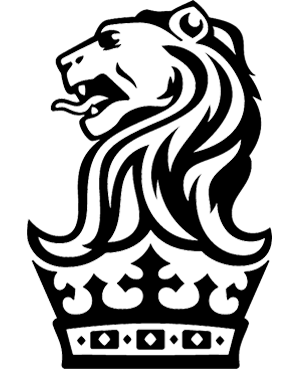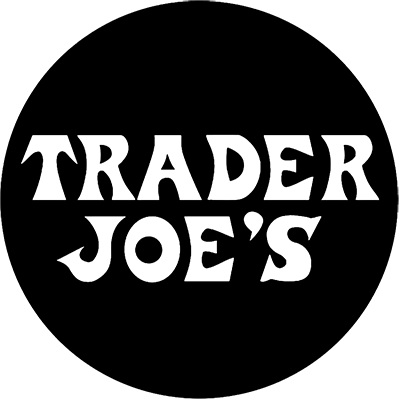Culture
Philosophy
What kind of culture do you want to build? Understand the principles and beliefs that shape each brand's culture.
Don't mess up the culture
After closing their Series C with investor Peter Thiel, co-founder Brian Chesky asked him for the most important piece of advice Peter could give. His reply was, "Don't f*ck up the culture."
In an interview at Stanford University, Brian explains that the way to not mess it up is "by focusing on it and designing it...Now, that doesn't mean you control everything [about it]. The whole point of culture is you only control a few things." For Brian, those few things are ensuring that the mission and the core values are infused into everything they do.
When explaining this to staff in an open letter, Brian writes, "Culture is a thousand things, a thousand times. It’s living the core values when you hire; when you write an email; when you are working on a project; when you are walking in the hall."
"The stronger the culture, the less corporate process a company needs," he continues. "When the culture is strong, you can trust everyone to do the right thing. People can be independent and autonomous. They can be entrepreneurial...Ever notice how families or tribes don’t require much process? That is because there is such a strong trust and culture that it supersedes any process."
Create a culture run by ideas, not hierarchy
All employees at Apple, from senior leaders to entry-level staff, are expected to check their egos at the door. Steve Jobs believed that innovation can only flourish if you have a courageous team of A players who are willing to speak their minds and challenge the status quo.
But these fearless A players also needed to be strong enough to risk being called a "bozo" by Jobs in the name of trying to make a better product. It was this brutal honesty that Jobs infused into Apple's culture to help quickly expose mediocrity and weed out anyone whose heart wasn't fully committed to the brand's cause and mission.
Create a 'Culture of Care'
Founder Truett Cathy set out to build a company culture where staff genuinely care for each other and put other's needs ahead of their own. But a culture like this can only flourish when "it is backed up by authentic sentiment, reinforced through action, and strengthened over time." Some key ways that Chick-fil-a fosters their Culture of Care is to:
- Inspire care through words. Leaders greet each staff member every morning with a warm hello and can spend entire one-on-one sessions discussing any problems their staff are having.
- Set an example of care through actions. After lunch, the CEO and leaders can be found clearing the staff's dishes in the cafeteria. They also make their departures very public when leaving early for family events to set a tone of work-life flexibility.
- Spread the tools for care through training. Every corporate leader goes through a two-year training program to understand the foundations of servant leadership.
- Reinforce an expectation of care through evaluations. All staff are evaluated on how they embody the company's core values during bi-annual evaluations and monthly check-ins with their manager.
Create an amazing playground for the world's smart creatives to solve big problems
Google founders Larry Page and Sergey Brin set out to create a company where people can "do cool things that matter." To accomplish this, they focused on hiring smart and creative people, giving them as much freedom as possible, and creating a culture around them that was based on four cornerstones:
- Mission: Create a clear mission that has the potential to impact many lives and empowers staff to help achieve it.
- Transparency: Build trust by setting your default assumption to: All information can and should be shared with coworkers.
- Voice: Give everyone a real say in how the company is run by providing platforms to offer input, give feedback, or present ideas.
- Space: Provide a physical environment that inspires creativity and that takes care of life's everyday needs so employees don't have to worry about little things.
Create a culture of freedom and responsibility
The Netflix culture is not for everyone, and Netflix is okay with that. When creating their famous Netflix Culture Deck (PDF), the ideas behind it were simple: Choose people over process and strive for innovation, not error prevention.
By providing more freedom and less rules, staff took on more ownership and responsibility. Although The Deck has evolved into an online site, the core philosophy remains the same:
- Encourage independent decision-making by employees.
- Share information openly, broadly, and deliberately.
- Practice radical honesty with each other.
- Keep only high performers.
- Avoid rules at all cost.
Let them be the humans you hired
Founder Yvon Chouinard set out to create a culture at Patagonia where employees had the flexibility to surf, ski, or explore. He felt it would be cruel to hire people who love the outdoors and then keep them in front of a screen all day. It would also be impossible to make the best outdoor clothing with an 'indoor' culture.
His goal was to blur the distinction between work, play, and family. It didn't matter when you work as long as the job gets done with no negative impact to others. In Patagonia's employee handbook, Let My People Go Surfing, he even encourages employees to drop work and get outside when the surf comes up. Yvon believed that work needed to be enjoyable on a daily basis, where you "come to work on the balls of [your] feet and go up the stairs two steps at a time. We needed to be surrounded by friends who could dress whatever way they wanted, even be barefoot."
Become Ladies and Gentlemen who serve Ladies and Gentlemen
Although these Ladies and Gentlemen are there to serve, The Ritz-Carlton staff are not servants. Co-founder Horst Schulze believed that if you performed your job with excellence, presented yourself with pride, and always remained respectful, you become just as important as the people you serve.
Create a culture of tenacity, LUV, and fun
From the day Southwest was founded, they were in a fight for survival. In those first years, Southwest was in a "David-and-Goliath battle with bigger airlines just to earn the right to fly." While these legal battles almost bankrupted the company, they emerged victorious with an enduring culture rooted in having:
- A Warrior's Spirit: Work hard, mount a good offense, and never surrender.
- A Servant's Heart: Put others first and live by the Golden Rule.
- A Fun-LUVing Attitude: Be a passionate team player who doesn't take yourself seriously.
Create a culture that fosters pride, inspiration, and respect
At the age of 7, Howard saw his injured father tossed aside by his employer leaving his family with no money and no safety net. When Howard became CEO of Starbucks, he "wanted to build the kind of company that (his) dad never got a chance to work for;...a place where partners feel proud, inspired, appreciated, cared for, and respected...When partners...feel proud of (Starbucks), they willingly elevate the experience for each other and customers, one cup at a time."
Create a culture that gives staff the freedom to have fun and be themselves
Former CEO, John Shields would famously tell new hires that "at the end of 30 days, if you are not having fun, please quit.”
To create a culture where employees actually have fun at their jobs while also genuinely caring about their customers, Trader Joe's first ensures that every employee has the opportunity to be themselves. Instead of trying to shape their crew into a specific corporate mold, they instead hire "outwardly nice" people and just let them loose.
On their first day, new crew members are only given three simple instructions, when it comes to customer service:
- Be yourself. Share stories about your life with customers. No topic is off the table, including politics and religion.
- Be genuine. Don't use scripts. Even when a crew member is asked how they are doing, they are encouraged to answer honestly, even on bad days.
- Be nice. Treat customers like you would a guest in your home, but treat your fellow crew members the same way.
Create a culture of empowerment
On Ray Davis' first day as CEO of Umpqua Bank, he received a call from an associate asking if an upset customer could be reimbursed for fees totaling $20. His response was, "What do you think we should do?" With that one question, Ray began building a culture where every staff member could make customer service decisions without asking for permission.
However, to build an empowered culture, he had to make two additional things very clear:
- Leaders can never punish or criticize any decision by an associate. Instead, leaders are responsible for defining broad guidelines for associates to operate within. Based on an associate's decision, leaders can either say, "Great job, way to go!" or suggest a better way to do it next time.
- Associates are to be held accountable for the decisions they make. Every associate is responsible for being able to explain a decision they make. When an associate was asked why she reversed $500 out of $700 in charges, she explained that "the customer was basically broke, and the bank would never collect the $700 anyway. But she wanted to impress upon the customer that the charges were her responsibility, so she didn't wipe them all away."
Make employees so happy that it naturally creates the very best customer service
How do you make employees happy to be at work on a Monday morning? Co-founder Tony Hsieh believed that the key to employee happiness was a result of infusing these four principles into a brand's culture:
- Perceived control: Everyone is empowered through trust, has clear accountabilities, is not micro-managed, and is not afraid to fail in the pursuit of progress.
- Perceived progress: Everyone has a clear progression plan with continuous recognition, accolades, ceremonies, and smaller bumps in salary and promotions over shorter periods of time.
- Connectedness: Employees form meaningful relationships with one another by letting loose, having fun, and expressing their own personality (weirdness and all).
- Vision/Meaning: Employees are a part of something bigger than themselves and are given the freedom to discover their own higher purpose.
This culture cocktail creates what Zapponians call 'finding your ikigai' which translates to your 'reason for getting up in the morning.'











